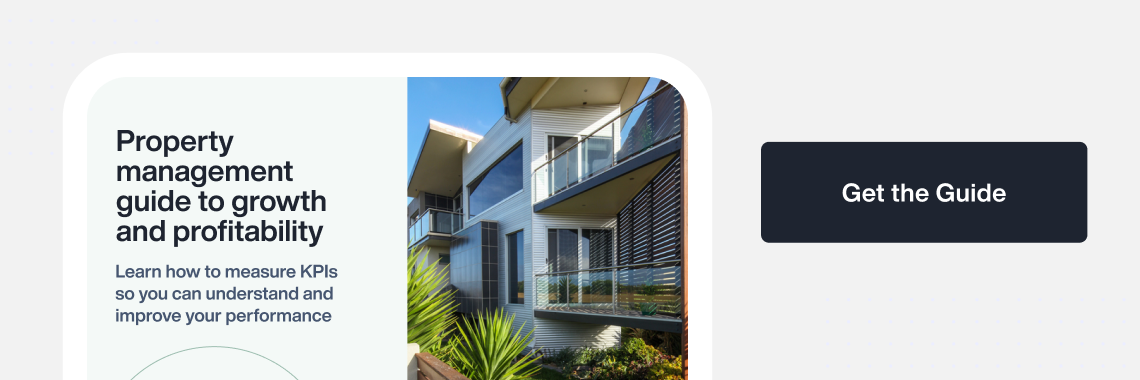Published on June 2nd, 2025
By Marc Frenkiel
With acquisitions being a common occurrence in the real estate world, it’s important to ensure that your business’s technology strategy is scalable enough to easily onboard new units and properties and ensure consistency in processes and data reporting. Whether your portfolio includes single-family, affordable housing, multifamily property management, or a mixture of all these and possibly more, preparing your tech stack is critical.
Here’s how to make sure your technology strategy can support your growth goals.
Acquisitions as a Growth Strategy
When people think of real estate acquisitions, property trades are typically what comes to mind. But acquiring property management companies also falls under this category. It’s a legitimate growth strategy, offering benefits like:
Rapid Expansion
Rather than piecemealing new units or properties into your portfolio, acquiring established smaller businesses allows you to quickly increase your property portfolio and geographic reach while maintaining a strong local presence.
Diversification
Expanding into new markets or property types can help diversify your revenue streams and mitigate risk. Entering the multifamily property management space, for example, offers the combined benefits of both rapid expansion and diversification.
Operational Efficiency
Unifying resources, technology, and expertise can lead to operational efficiencies and cost savings. Whether you are investing in optimized reporting tools, smart workflow automation, or multifamily property management solutions, keeping centralization of systems and technologies a priority during acquisitions is critical.
Access to Talent
Acquiring smaller firms often means gaining access to experienced property management professionals who already have relationships with the residents at the property, a major plus given the fact that HR, staffing, and recruitment continues to challenge property management companies.
Clearly, an acquisition can be a rewarding growth opportunity, but it is not without risk. A technology strategy, however, can help reduce any downtime that comes with onboarding new properties and team members — and overall risk as a result.
Technology’s Role in the Successful Integration of New Properties and Team Members
One of the ways Birmingham, Alabama-based Evernest scales their business is through acquisitions. They currently have over 32,000 units under management with a mixture of single-family and multifamily rental property assets, and this number continues to grow.
When a local property management business or a larger management company decides they want to sell, they trust Evernest to serve their teams and communities. But Evernest knows that one of the keys to their success is bringing the newly acquired business onto their primary property management platform rather than keeping those units on the previous platform that the acquired company was using.
Consolidating technology systems allows Evernest to do more with less friction. As Matthew Whitaker, Founder and CEO of the company, explains:
“When you’re growing your business, you need software that’s easy to integrate and can automate as many processes as possible. We were confident in this purchase because we have the confidence that AppFolio is going to help us.”
Onboarding new teams and properties onto your primary property management software also allows for:
Seamless Data Transfer
With a unified platform, data from the acquired business can be seamlessly transferred into the buyer’s existing property management system. This ensures consistency and eliminates the need for manual data entry, reducing errors and saving time.
Standardized Processes
The integration of acquired businesses onto a common platform allows for the standardization of processes and procedures, making it easier for the buyer and their entire team to manage multiple properties efficiently.
Centralization of Communications
A unified platform provides a centralized communication hub for renters and clients. This ensures that residents receive consistent and timely communication during the transition phase.
More Efficient Training
Having only one platform across the portfolio makes training easier since teams have to learn only one system rather than being overwhelmed with having to learn multiple platforms. It also allows for better cross-functional training and on-demand learning with content that team members can watch on their own time.
The most cutting-edge innovation is meaningless, however, without the proper team behind you, helping you get up and running and staying by your side to guide you throughout your software journey. Make sure your software partner is just that: a partner.
Matthew shares his experience with the AppFolio onboarding team:
“We were integrating a business one time, and it was late on a Friday, and we needed AppFolio to help us get some things done before the weekend started. The AppFolio team bent over backwards to help us get that business integrated before the cutoff day on Friday.”
Closing Thoughts
According to RubyHome Luxury Real Estate, there are an estimated 326,000 property management companies in the United States, generating $99.5 billion in annual revenue. The market typically grows by around 2% annually, but rising interest rates and a slowdown in real estate deal closings could cause a new decline in the market.
It’s this slowdown in deal flow, however, that has seen large brokerage houses lean more heavily into the acquisition of property management companies. A well-thought-out approach to property management technology within your business can help your business continue to scale and make future acquisitions more and more feasible. After all, scalability isn’t just a buzzword. It’s a fundamental requirement for success in real estate.
Download our free guide below for more ways you can effectively grow your property management business.









Comments by Marc Frenkiel